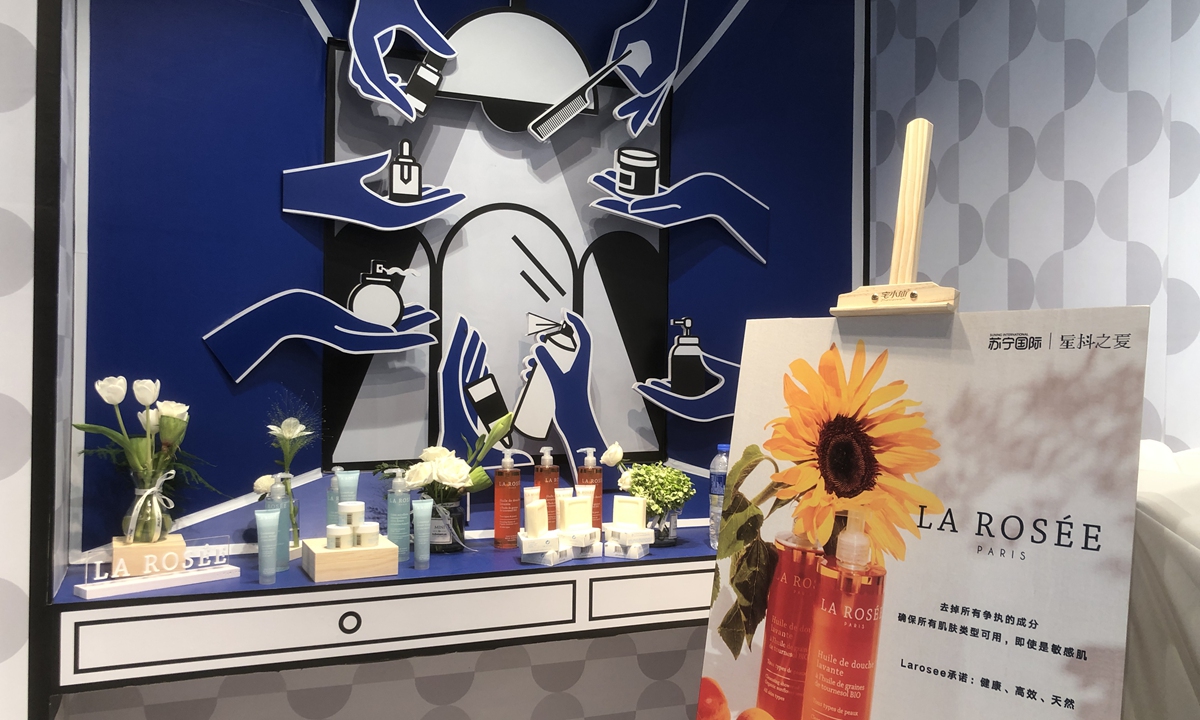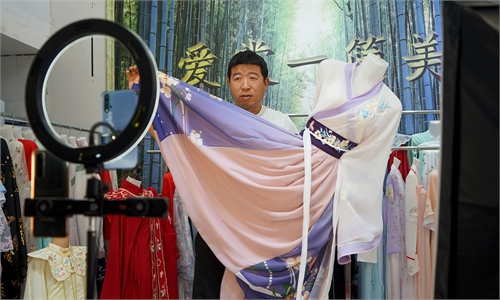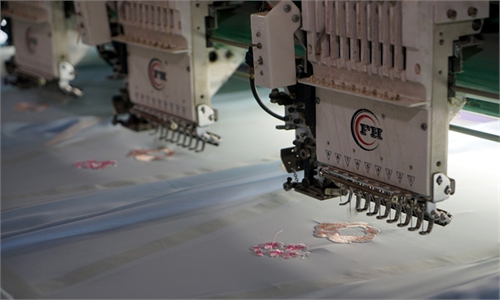
Suning’s high-end retail service platform pop-up store in Nanjing, East China’s Jiangsu Province, June 23, 2021. Photo: Zhang Hongpei/GT
Suning International, the international business arm of e-commerce giant Suning Group, kicked off its cooperation with Douyin, the Chinese sister app of TikTok, to expand cross-border retail while betting on the growing momentum of the recovery of domestic consumption in the post-pandemic period.
The creation of "Z Beauty Alliance", an industry body initiated by Suning International was also unveiled during the event on Wednesday in its headquarters in Nanjing, East China's Jiangsu Province. It will lead future cosmetics consumption trends, especially catering to the taste of the Generation Z, those born between 1996 and 2010.
The alliance between Suning International and Douyin came at a moment when Suning is trying to expand its share in cross-border consumption, which has been on an upward trend in China over recent years. Meanwhile, the popular video sharing app Douyin has been pushing ahead its e-commerce businesses based on its huge traffic through livestreaming, which witnessed rapid growth especially during the pandemic in 2020.
In 2020, China's cross-border e-commerce reached 1.69 trillion yuan ($260 billion), an increase of 31.1 percent year-on-year, according to customs data. Cross-border e-commerce has become the first choice for enterprises to carry out international trade, ushering in a new round of opportunities.
Jia Meng, General Manager of Suning International, told the Global Times that the development of traditional cross-border platforms has already reached a bottleneck. "Industry players are seeking innovative ways like livestreaming where you can have direct contact with consumers."
With a variety of global brands on its platform, Suning International aims to help its partners to penetrate the Chinese market thanks to the value of the brand that is well established among consumers. "Douyin has precise matching abilities between content and users. Based on this technology we can help foreign brands to land here," Jia said.
In May, Suning International unveiled its program for a "one-stop solution for overseas brands to enter China" which aims to leverage its international supply chains and capabilities to empower global brands to explore and grow in China's market.
"Currently, the platform mainly sources products from Japan and South Korea. Meanwhile, we can see that some products like Australian wine has dropped a lot due to tariffs," Jia noted.
Australia used to be a strong competitor in the wine market in China but it has lost its top spot to French wine. In the first five months of this year, wine imports from Australia dropped significantly against French wine, according to customs data.
"What we have seen is that overseas brands have been actively entering the Chinese market. They were vying to supply the market even during the pandemic in 2020 that disrupted their capacity. The outbreak of coronavirus might have offered some experience for them in moving forward with a localization strategy," said Jia.
China's retail sales expanded 12.4 percent year-on-year in May, reaching 3.59 trillion yuan, up 0.81 percent from the previous month, according to the latest data from the National Bureau of Statistics. Post-pandemic economic growth has been fueled by consumption despite a slower expansion compared with the previous month.



